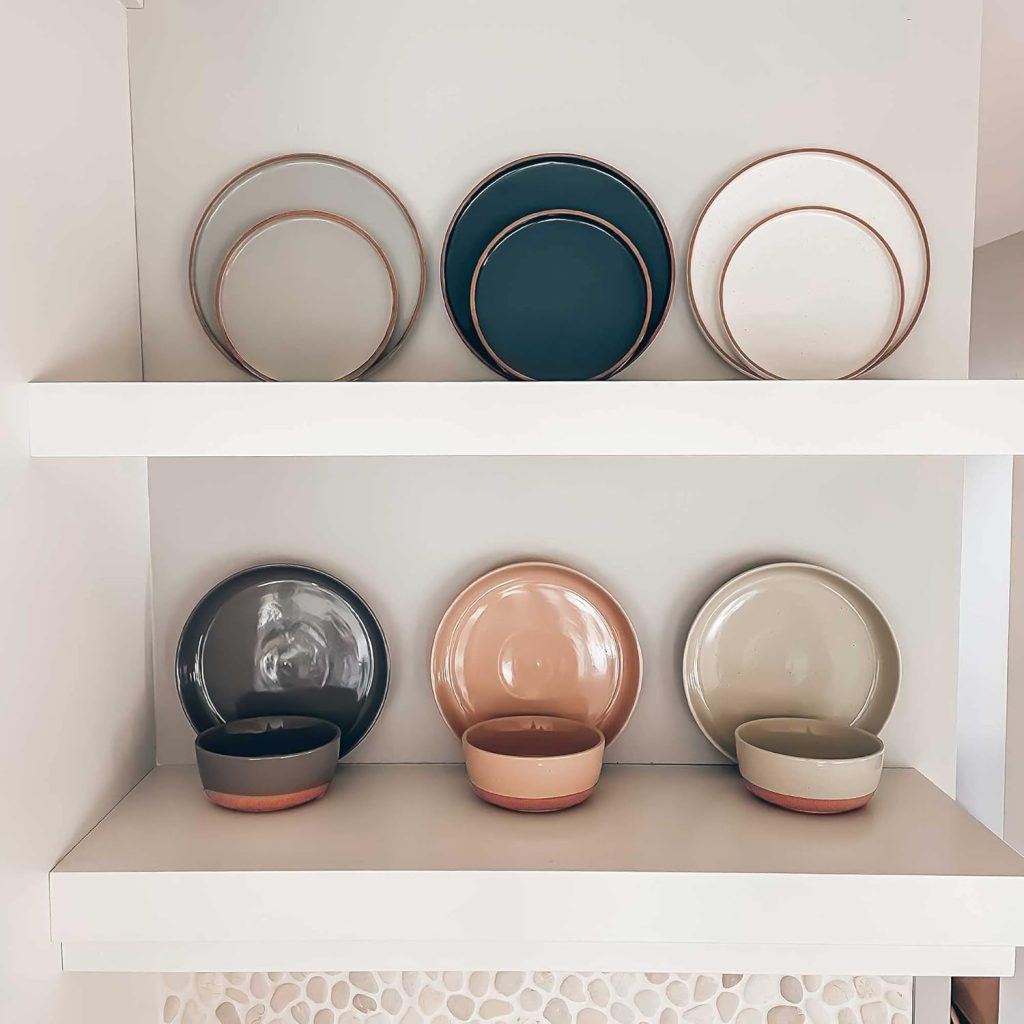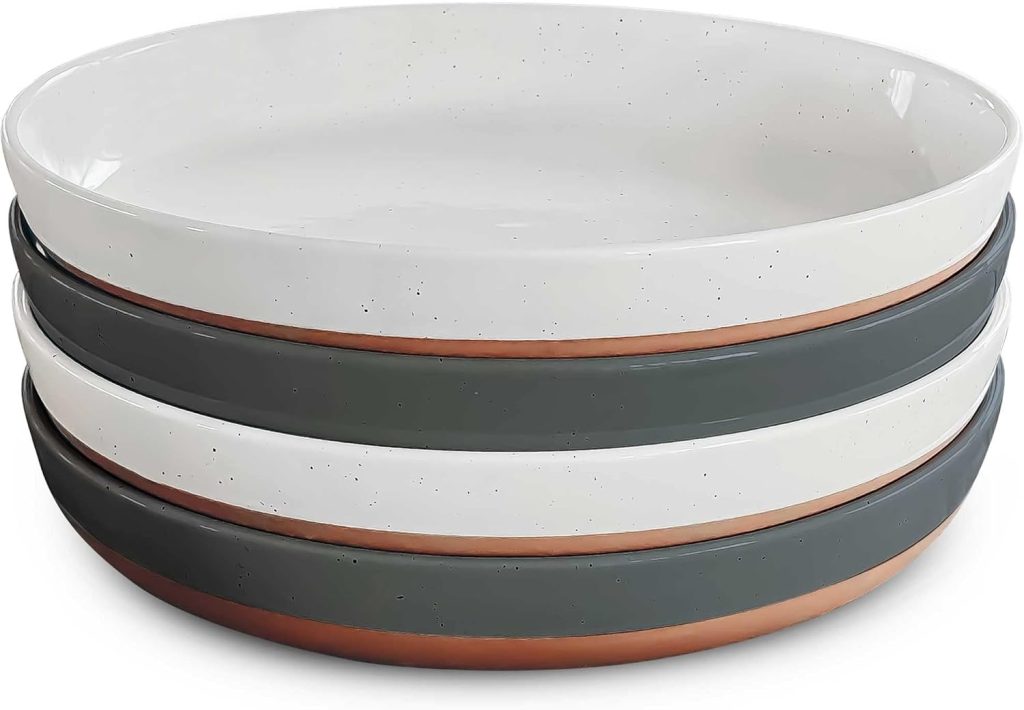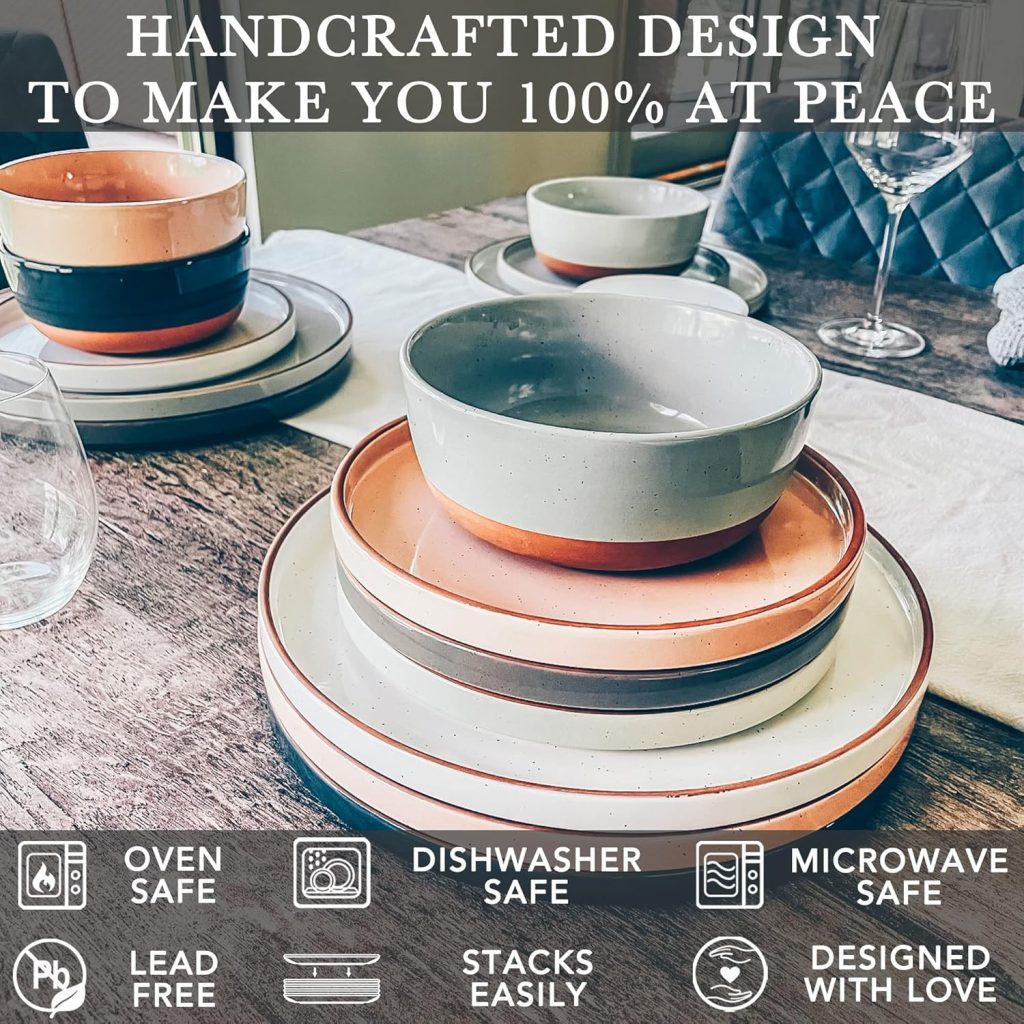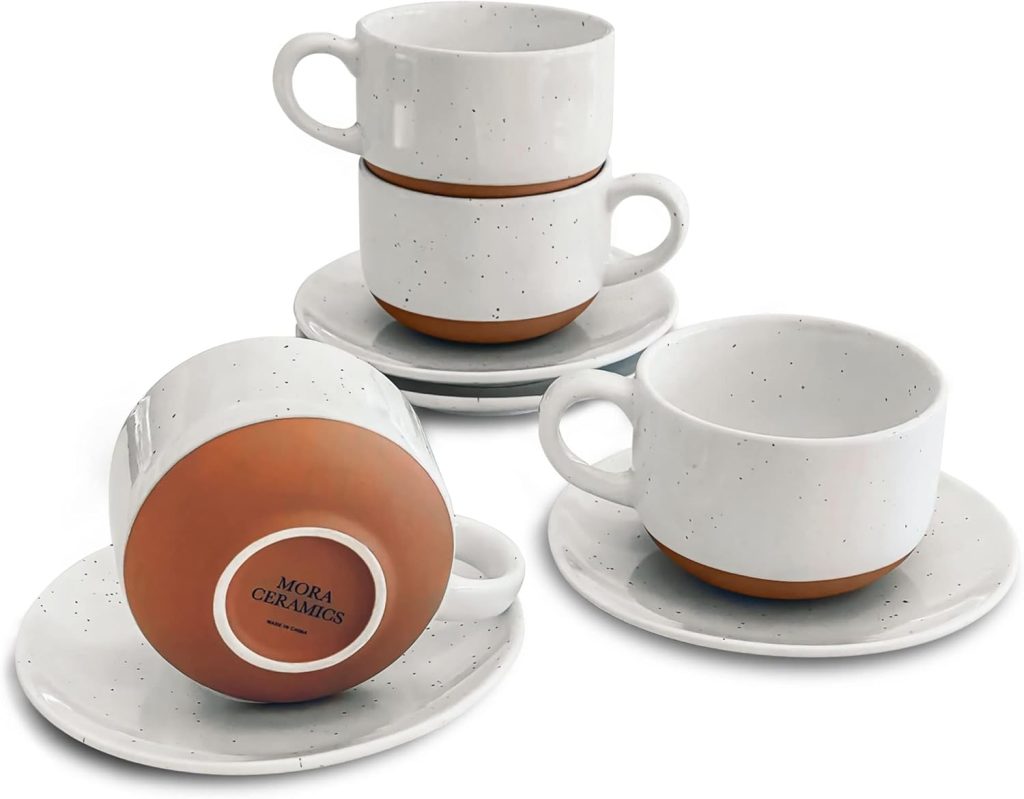You’re holding a beautifully crafted ceramic mug, steam rising from your morning coffee, and suddenly you wonder where exactly this piece was made.
More importantly, is it safe for you and your family? In today’s world of mass production and questionable manufacturing practices, discerning consumers are increasingly asking these vital questions about their dinnerware.
Mora Ceramics has emerged as a beacon of transparency in the ceramic industry, but its story goes far beyond typical manufacturing.
Founded by Alix in Minneapolis as a response to her personal mental health journey, this brand represents something deeper: a commitment to wellness, sustainability, and artisanal quality that spans continents.
Their unique approach to ceramic production involves a fascinating blend of American design sensibilities and Asian manufacturing expertise.
But here’s where it gets interesting: Mora’s manufacturing process involves a proprietary clay formula that’s revolutionizing the ceramic industry, and their production story might just change how you think about where your dinnerware should come from.
MORA CERAMICS MANUFACTURING LOCATION: A GLOBAL APPROACH TO LOCAL QUALITY
Design Process in Minneapolis
The journey of every Mora Ceramics piece begins in the heart of Minneapolis, Minnesota. This isn’t just about geography; it’s about philosophy.
Alix, the founder, thoughtfully designs each piece with care in her Minneapolis studio, ensuring that every curve, every handle, and every glaze colour reflects the brand’s commitment to mindful living.
The design process in Minneapolis represents more than just artistic vision. It’s where the brand’s core values of wellness and intentional living are translated into tangible products.
Each piece is conceptualized with the user’s daily rituals in mind, creating what the brand calls “moments of pause” in our increasingly hectic lives.
Production in Xiamen, China: The Family-Owned Difference
Here’s where many ceramic enthusiasts might raise an eyebrow—Mora Ceramics are manufactured in Xiamen, China.
But before you make assumptions, let’s delve into what makes this arrangement extraordinary.

The creation moves to their family-owned studio in Xiamen, where production takes place under the direct supervision of Alix’s brother-in-law.
This isn’t your typical outsourced manufacturing relationship. It’s a family affair that bridges continents whilst maintaining the highest quality standards.
Xiamen, located in Fujian Province, has been a centre of ceramic excellence for centuries.
The city’s rich history in porcelain production, combined with modern manufacturing capabilities, creates the perfect environment for Mora’s high-quality ceramic production.
Quality Control and Family Ownership
What sets Mora apart from other brands manufacturing in China is their approach to quality control. Alix’s brother-in-law serves as the quality control manager and leads the production team, creating a direct family connection to every piece produced.
This family-owned studio model ensures that:
- Every batch is meticulously overseen with precision and care
- Quality standards remain consistently high
- The brand’s values are maintained throughout production
- Direct communication exists between design and manufacturing teams
IS MORA CERAMICS MICROWAVE SAFE? TEMPERATURE RESISTANCE AND PRACTICAL USAGE
Temperature Resistance and Heat Handling
One of the most frequently asked questions about Mora Ceramics microwave safety deserves a definitive answer: Yes, Mora Ceramics are microwave safe.

But the story behind this safety extends far beyond simple microwave compatibility.
Mora ceramics are fired at an impressive 1500°F, creating a strength and durability that handles temperature variations with ease. This high-temperature firing process results in ceramics that are:
- Microwave safe for everyday heating
- Oven safe up to 500°F (even at broiler temperatures)
- Freezer safe for food storage
- Dishwasher safe for easy cleaning
Safe Usage Guidelines
Whilst Mora Ceramics dishwasher safe and microwave-friendly properties make them incredibly versatile, there are some important guidelines to follow:

Important Safety Notes:
- Never place ceramics directly over an open flame
- Allow ceramics to reach room temperature before extreme temperature changes
- Avoid transferring directly from freezer to oven
- Use proper oven mitts when handling hot ceramics
Oven and Freezer Compatibility
The temperature resistance of Mora Ceramics makes them incredibly versatile for modern cooking needs.

Whether you’re reheating leftovers in the microwave or preparing a casserole in the oven, these ceramics handle the heat with remarkable stability.
| Usage Type | Temperature Range | Safety Status |
| Microwave | Standard heating | ✓ Safe |
| Oven | Up to 500°F | ✓ Safe |
| Freezer | Standard freezing | ✓ Safe |
| Dishwasher | Standard cycles | ✓ Safe |
| Open flame | Direct contact | ✗ Not safe |
MORA CERAMICS SAFETY AND NON-TOXIC PROPERTIES: YOUR HEALTH MATTERS
Lead-Free Certification and Peace of Mind
When it comes to Mora Ceramics lead free properties, the brand takes an uncompromising stance. None of their glazes or clay contain lead, cadmium, or any other heavy metals.
This isn’t just a marketing claim, it’s a fundamental commitment to your family’s health.
The importance of lead-free ceramic dinnerware cannot be overstated. Lead exposure, even in small amounts, can have serious health implications, particularly for children.
Mora’s commitment to lead-free production ensures that every meal served on their ceramics is completely safe.
Heavy Metal-Free Composition
Mora Ceramics non-toxic properties extend beyond just lead-free certification. The brand’s approach to heavy metal free ceramics includes:
- No lead in glazes or clay
- No cadmium in any component
- No mercury or other toxic metals
- No arsenic or harmful compounds
This comprehensive approach to safety means you can serve food to your family with complete confidence, knowing that no harmful substances will leach into your meals.
PFOA-Free Materials
In addition to being heavy metal-free, Mora Ceramics are also PFOA-free. PFOAs (perfluorooctanoic acids) are synthetic chemicals commonly found in non-stick coatings, but have no place in quality ceramics.
The brand’s commitment to PFOA-free ceramics ensures that your dinnerware remains free from these potentially harmful synthetic compounds, supporting your family’s long-term health and well-being.
California Prop 65 Compliance
Mora products meet the strict safety standards of California Prop 65, one of the most stringent consumer protection laws in the United States.
This compliance ensures that the ceramics are free from harmful substances that could pose health risks.
California Prop 65 compliance is particularly significant because it requires manufacturers to prove their products don’t contain any of over 900 chemicals known to cause cancer or reproductive harm.
Mora’s compliance with these standards provides additional peace of mind for health-conscious consumers.
UNDERSTANDING PALADIN CLAY TECHNOLOGY: THE SCIENCE BEHIND SUPERIOR CERAMICS
What Makes Paladin Clay Unique
At the heart of every Mora ceramic piece lies Paladin clay, a proprietary formulation that sets the brand apart from conventional ceramic manufacturers.
Jerry, Co-founder and chemical engineer, developed this high-quality clay made specially for Mora Ceramics.
The name “Paladin” isn’t chosen arbitrarily. Named after historical Paladins (known for being strong and lean), this exclusive Paladin clay creates ceramics that are 20% stronger and impressively lightweight.
Paladin clay composition represents years of research and development, creating a material that combines:
- Superior strength (20% stronger than standard ceramics)
- Lightweight design for comfortable handling
- Chip-resistant properties for durability
- Restaurant-grade performance for commercial use
Strength and Durability Features
The strength and durability of Paladin clay make Mora ceramics suitable for both home and commercial use.
This restaurant-grade ceramics designation isn’t just marketing, it’s a testament to the material’s ability to withstand the rigours of professional kitchen environments.
Key strength features include:
- 20% stronger than conventional ceramics
- Chip-resistant surface that maintains appearance
- Lightweight construction for easy handling
- Thermal shock resistance for temperature changes
Chemical Engineer Development Process
The development of Paladin clay showcases the brand’s commitment to scientific excellence. Jerry’s background as a chemical engineer brings a level of technical expertise rarely seen in ceramic manufacturing.
The clay recipe is a closely guarded secret, but the continuous refinement process ensures that each batch meets the highest standards. This ceramic manufacturing process involves:
- Ongoing formula optimization
- Regular quality testing
- Continuous improvement protocols
- Scientific analysis of performance metrics
MATERIALS AND MANUFACTURING PROCESS: FROM CLAY TO KITCHEN
Clay Composition and Properties
The materials used in Mora Ceramics manufacturing represent a perfect blend of traditional ceramic knowledge and modern scientific innovation.
While the exact Paladin clay composition remains proprietary, we know it’s formulated to deliver exceptional performance characteristics.
Key material properties include:
- High-temperature resistance (fired at 1500°F)
- Non-porous surface that resists staining
- Smooth texture for comfortable handling
- Consistent colour across production batches
Glazing System and Finish
The glazing system used by Mora represents another crucial aspect of their manufacturing excellence.
In-house glazes are completely free of heavy metals, PFOAs, lead, and cadmium, designed to complement rather than complicate your life.
Glaze characteristics include:
- Food-safe formulation with no toxic substances
- Durable finish that resists wear and scratching
- Easy cleaning properties for maintenance
- Consistent appearance across product lines
Quality Control Standards
The quality control standards maintained by Mora Ceramics ensure that every piece meets their exacting specifications.
Each batch is meticulously overseen with precision and care, maintaining consistency across all products.
Quality control measures include:
- Visual inspection of every piece
- Dimensional accuracy checking
- Glaze consistency verification
- Strength testing protocols
| Quality Check | Frequency | Standard |
| Visual inspection | Every piece | Zero defects |
| Dimensional accuracy | Random sampling | ±2% tolerance |
| Glaze consistency | Every batch | Colour match |
| Strength testing | Weekly | 20% above standard |
CARE AND MAINTENANCE GUIDELINES: KEEPING YOUR CERAMICS BEAUTIFUL
Dishwasher Safety and Cleaning
Mora Ceramics dishwasher safe properties make maintenance incredibly convenient.
All ceramics are dishwasher safe to make cleanup a breeze, though the brand recommends specific care for optimal longevity.
Dishwasher guidelines:
- Use standard dishwasher cycles
- Avoid overcrowding to prevent chipping
- Use mild detergents for best results
- Allow proper drying time
Proper Cleaning Methods
While dishwasher cleaning is convenient, proper hand washing can extend the life of your ceramics.
The brand recommends handwashing glassware and accessories like infusers, spoons, and lids to keep them looking their best.
Hand washing tips:
- Use warm water and mild soap
- Avoid abrasive cleaners or scrubbers
- Dry thoroughly to prevent water spots
- Store carefully to prevent chipping
Storage Recommendations
Proper storage ensures your Mora Ceramics maintain their beauty and functionality over time. Consider these storage best practices:
- Stack carefully with protective padding
- Store in dry conditions to prevent moisture damage
- Avoid extreme temperatures during storage
- Handle with care to prevent accidental damage
COMPARING CERAMIC MANUFACTURING: A GLOBAL PERSPECTIVE
When discussing where ceramics are made, it’s worth noting that consumers often wonder about other popular brands.
For instance, questions like “where is Wisenvoy dinnerware made?” or “where is Famiware dinnerware made?” reflect the growing consumer awareness about manufacturing origins and quality standards.
Mora’s approach to international manufacturing sets a benchmark for transparency and quality control that other brands might emulate.
Their family-owned studio model in Xiamen demonstrates that the location of manufacturing matters less than the commitment to quality and safety.
Manufacturing Transparency in the Industry
The ceramic industry has seen increasing demand for manufacturing transparency. Consumers want to know:
- Where their products are made
- What materials are used
- How quality is ensured
- What safety standards are met
Mora’s open approach to sharing their manufacturing story, from Minneapolis design to Xiamen production, reflects this industry trend towards transparency.
THE ENVIRONMENTAL IMPACT: SUSTAINABLE MANUFACTURING PRACTICES
Packaging and Sustainability:
Mora’s commitment to environmental responsibility extends beyond their ceramics to their packaging practices.
Their cardboard packaging is all recyclable, allowing consumers to continue building their collections guilt-free.
Sustainable packaging features:
- Recyclable cardboard primary packaging
- Biodegradable foam for protection when needed
- Minimal packaging approach
- Eco-friendly materials throughout
Manufacturing Footprint
The environmental impact of ceramic manufacturing is an important consideration for conscious consumers. Mora’s approach to sustainable manufacturing includes:
- Energy-efficient firing processes
- Waste reduction protocols
- Responsible sourcing of materials
- Long-lasting products that reduce replacement needs
FREQUENTLY ASKED QUESTIONS: EVERYTHING YOU NEED TO KNOW
Their strength, durability, and safety features make them excellent for professional kitchens and hospitality environments.
Authentic Mora Ceramics feature consistent quality, proper packaging, and come with official documentation. Purchase from authorized retailers to ensure authenticity.
Yes, Mora Ceramics are oven safe up to 500°F, making them suitable for baking applications. Always follow proper temperature guidelines for best results.
Grey marks from silverware are easily removed using a nylon scrubber and a gentle abrasive like Bar Keeper’s Friend.
These marks are superficial and don’t affect the ceramic’s safety or integrity.
With proper care, Mora Ceramics can last for decades. Their chip-resistant properties and durable construction make them a long-term investment for your kitchen.
CONCLUSION: WHY MORA CERAMICS REPRESENTS THE FUTURE OF DINNERWARE
Mora Ceramics represents more than just beautifully crafted dinnerware; it’s a testament to what’s possible when design excellence meets manufacturing integrity.
From their Minneapolis design studio to their family-owned facility in Xiamen, every aspect of their process reflects a commitment to quality, safety, and transparency.
The Paladin clay technology, non-toxic materials, and microwave-safe properties make Mora ceramics an ideal choice for health-conscious consumers who refuse to compromise on style or safety.
Their lead-free certification and California Prop 65 compliance provide the peace of mind that modern families deserve.
As we’ve explored throughout this guide, where ceramics are made matters less than how they’re made and who’s responsible for quality.
Mora’s family-owned approach to manufacturing, combined with their scientific approach to materials development, creates products that exceed industry standards whilst maintaining artisanal quality.
Your family’s health and your home’s beauty deserve nothing less than the best. Make the switch to Mora Ceramics today.
For more information about ceramic safety standards and manufacturing practices, visit California Prop 65 and FDA Ceramic Dinnerware Safety Guidelines for comprehensive resources.